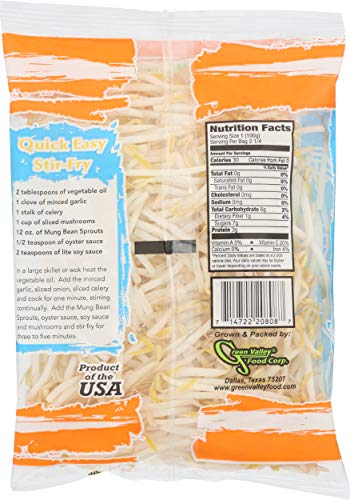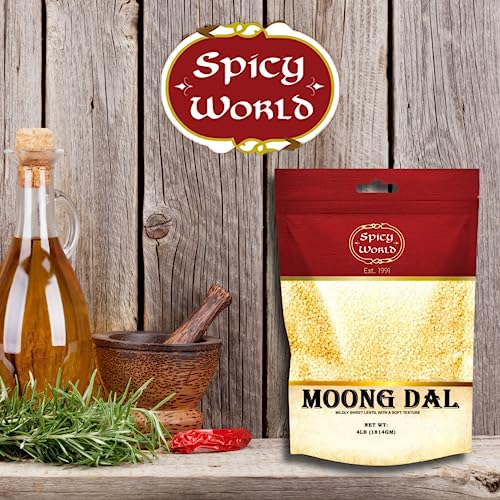Sprout Mung Bean Conventional, 1 Each
Category: mung beans

Mung Bean is a type of legume that is widely consumed in many parts of the world, particularly in Asia. It is a small, green bean with a distinctive flavor and numerous health benefits. Mung beans are an excellent source of protein, fiber, and a variety of vitamins and minerals, making them a nutritious addition to any diet.
One of the key features of mung beans is their versatility. They can be used in a wide range of dishes, from savory curries and stews to sweet desserts and snacks. In many Asian cuisines, mung beans are often used to make sprouts, which are then incorporated into salads, stir-fries, and other dishes. The beans can also be ground into a flour and used to make noodles, dumplings, and other baked goods.
In addition to their culinary versatility, mung beans are also known for their numerous health benefits. They are a rich source of protein, which is essential for maintaining muscle mass and promoting tissue repair. They also contain a significant amount of fiber, which can help to regulate digestion and promote feelings of fullness. Additionally, mung beans are a good source of various vitamins and minerals, including iron, folate, and magnesium, all of which are important for overall health and well-being.
Mung beans are typically cultivated using conventional farming methods, which involve the use of synthetic fertilizers and pesticides to ensure high yields and consistent quality. While this approach can be effective in terms of production, it can also have negative impacts on the environment and human health. For example, the use of synthetic pesticides can lead to soil degradation, water pollution, and the disruption of natural ecosystems.
In recent years, there has been a growing interest in organic and sustainable farming practices, which aim to minimize the use of synthetic inputs and promote the health of the soil, plants, and the environment as a whole. Organic mung bean production is one such approach, where farmers rely on natural fertilizers and pest control methods to grow their crops.
Organic mung beans are typically grown without the use of synthetic pesticides or fertilizers, which can have a range of benefits. For example, organic farming practices can help to preserve soil health, reduce the risk of water contamination, and support the diversity of local ecosystems. Additionally, organic mung beans may be perceived as a healthier and more sustainable option for consumers who are concerned about the environmental impact of their food choices.
Overall, mung beans are a versatile and nutritious legume that can be enjoyed in a variety of ways. Whether grown using conventional or organic methods, mung beans offer a range of health and environmental benefits that make them a valuable addition to any diet or culinary repertoire.
product information:
| Attribute | Value | ||||
|---|---|---|---|---|---|
| package_dimensions | 9.25 x 6.65 x 1.65 inches; 10.4 ounces | ||||
| manufacturer | Green Valley | ||||
| customer_reviews |
|
























